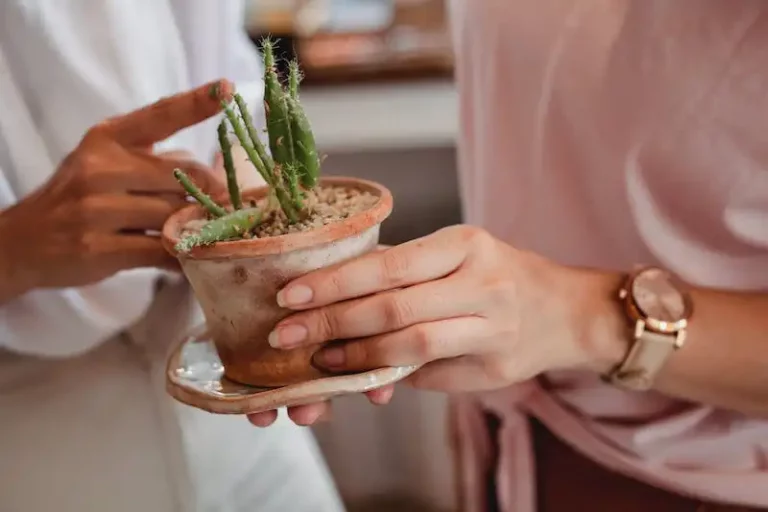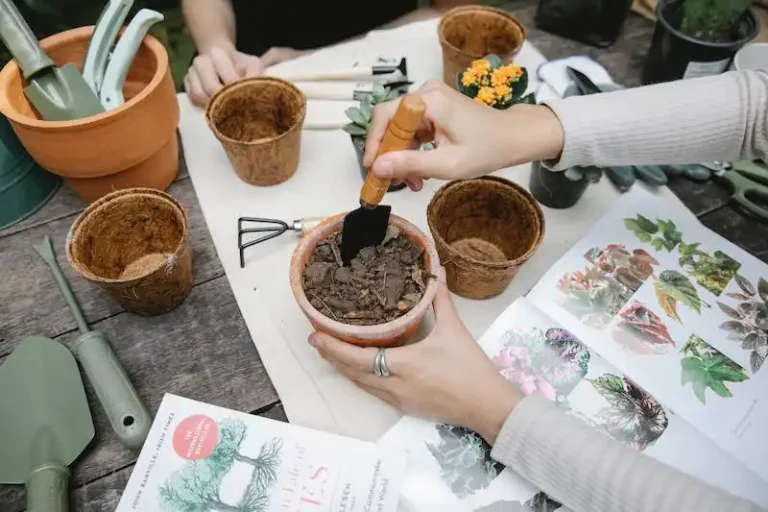Whiteflies are small winged insects that can infest a wide range of plants in your garden. They suck the sap from the leaves of your plants, which can weaken and even kill them if left untreated. These pests are often found in warmer climates, but can appear in any type of garden. If you know how to inspect your plants and where to look for whiteflies, you can take steps to manage and control these garden pests.
One of the best ways to prevent and protect your plants from whiteflies is to regularly water them and keep them healthy. Whiteflies are attracted to weak and stressed plants, so keeping your plants well-watered and healthy can help prevent infestations. Additionally, you can introduce natural predators like ladybugs and lacewings, as they can help keep whitefly populations in check.
If you already have a whitefly infestation, there are several ways to get rid of them. One solution is to use sticky traps, which can be placed near infested plants to catch adult whiteflies. Another option is to use insecticidal soap or neem oil, both of which can be effective in killing whitefly nymphs and adults. Just be sure to follow the instructions on the label when using these items.
For severe whitefly outbreaks, you may need to resort to more drastic measures, such as using horticultural oil or dust. These products can be applied directly to the infested plants to kill both the whiteflies and their eggs. However, it’s important to only use these methods as a last resort, as they can also harm beneficial insects and pollinators in your garden.
In addition to treating your plants, there are steps you can take to prevent whiteflies from returning in the future. First, inspect new plants before introducing them to your garden. Look for any signs of whiteflies, such as tiny white wings or sticky residue on the leaves. Additionally, regularly remove weeds and clean up any fallen leaves or debris, as these can provide hiding places for whiteflies and their eggs.
By following these steps and implementing the proper control measures, you can effectively manage whitefly infestations and protect the health of your garden. Remember to always keep an eye out for whiteflies and take action as soon as you spot them to prevent further damage to your plants.
8 Best Ways To Get Rid Of Whiteflies
-
Closer Inspection: Before applying any treatment method, it is important to closely inspect your plants. Whiteflies have a life cycle that includes eggs, nymphs, and adult winged insects. Knowing where they are in their life cycle can help determine the best course of action.
-
Sticky Traps: Hanging sticky traps near your plants can help trap and eliminate adult whiteflies. These traps are coated with a sticky substance that the insects get stuck to when they fly onto it. It is a simple and effective method to reduce their numbers.
-
Yellow Cardboard: Another trap method is to place yellow cardboard or flags near your plants. Whiteflies are attracted to the color yellow and will often settle on the cardboard, making it easier to remove them.
-
Garlic Spray: You can create a homemade garlic spray to deter whiteflies. Mix crushed garlic cloves with water and spray it onto the infected leaves. The strong smell and taste of garlic can affect the whiteflies and discourage them from feeding on your plants.
-
Natural Predators: Introducing natural predators, such as ladybugs or lacewings, into your garden can help manage whitefly populations. These insects feed on whiteflies and can greatly reduce their numbers.
-
Insecticidal Soap: Insecticidal soaps are effective at killing whitefly nymphs. These soaps work by suffocating the insects, making them a safer option for plants and the environment compared to chemical insecticides. Follow the instructions on the product label for proper application.
-
Vacuuming: For small infestations, manually removing whiteflies by vacuuming them off your plants can be an effective method. Use a handheld vacuum with a small brush attachment to carefully suck up the whiteflies. Dispose of the bag or contents immediately to prevent them from returning.
-
Neem Oil: Neem oil is a natural insecticide that can be used to kill whiteflies. It works by disrupting the insect’s hormonal balance and making it difficult for them to feed and breed. Dilute neem oil according to the instructions on the product and spray it onto the infected leaves.
Remember, getting rid of whiteflies may take some time and effort. It is important to monitor your plants regularly and take action as soon as you notice their presence. By employing these methods and staying consistent, you can successfully eliminate whiteflies from your garden and protect your plants from their devastating effects.
1 Vacuum them up
If you’re dealing with a whitefly infestation, one effective method of control is to vacuum them up. Whiteflies are small, flying insects that can be quite pesky in the garden or on houseplants. By keeping them under control, you can prevent them from causing damage to your plants.
Before you start vacuuming, there are a few tips to keep in mind. First, be sure to check the presence of whiteflies outdoors, as they can easily find their way back into your garden or home. Second, make sure to clean the vacuum cleaner thoroughly after each use to avoid spreading the pests. Finally, it’s a good idea to remove any leaves or weeds that may be infested with whiteflies and place them in a separate quarantine area.
There are also natural ways to eliminate whiteflies if you prefer not to use insecticides. One option is to introduce natural predators, such as ladybugs or lacewings, to your garden. These beneficial insects will feed on the whiteflies and help control their population. Another option is to use sticky traps or yellow boards to attract and trap the whiteflies.
If you have whiteflies on your houseplants, you can try a homemade solution using neem oil. Mix a few drops of neem oil with water in a spray bottle and mist the leaves of the plants. Neem oil is a natural insecticide that can help kill whiteflies and prevent further infestations.
Remember, getting rid of whiteflies can be a battle, and it may take several tries to completely eliminate them. Be patient and persistent in your efforts to control these pests. By following these tips and trying different methods, you’ll be on your way to a whitefly-free garden.
2 Hose them off
One effective way to control whiteflies is to hose them off your plants. This simple method can discourage their presence and help keep your plants healthy in the long-term.
To hose off your plants, you will need a hose with a spray nozzle attachment. Set the nozzle to a strong, direct stream of water. Begin by spraying the undersides of the leaves, as this is where whiteflies often like to hide.
When hosing off your plants, it’s important to be thorough and consistent. Make sure to reach every part of the plant, including the backside of the leaves and the stems. Pay special attention to new growth, as whiteflies are attracted to young, tender leaves.
Hosing off your plants regularly can help manage whitefly populations and prevent new infestations. It’s a good idea to check your plants regularly for signs of whiteflies, such as their small size and whitish wings. If you notice them, start hosing off the leaves immediately.
In addition to using water, you can also include some natural additives in your hose-off spray. For example, adding a few drops of dish soap or horticultural oil can help disrupt the whiteflies’ feeding and make it harder for them to hold onto your plants.
If you’re dealing with a particularly stubborn whitefly infestation, you may want to consider using a vacuum or a handheld electric blower to remove them. Be sure to suction them up gently, as you don’t want to damage your plants in the process.
Another option is to use a commercially available insecticide that specifically targets whiteflies. However, it’s best to use these products as a last resort, as they can sometimes harm beneficial insects like dragonflies.
Remember that prevention is key when it comes to managing whiteflies. Keep your garden clean and free of debris, as well as any infected or damaged plants. Regularly inspect your plants for signs of whiteflies and act promptly to control them. By following these steps, you can effectively manage whiteflies and keep your plants healthy and beautiful.
3 Mix a dish soap solution
Mixing a dish soap solution is a simple and effective way to control whiteflies. Dish soap contains surfactants that break down the waxy exoskeleton of whiteflies, ultimately causing them to dehydrate and die. Here are the steps to create and use a dish soap solution:
1. Fill a spray bottle with water, leaving some room at the top.
2. Add a few drops of dish soap to the water. Make sure to use a mild dish soap and avoid ones with harsh chemicals.
3. Gently shake the spray bottle to mix the water and dish soap together.
4. In the evening, when the whiteflies are less active, spray the solution generously on the affected plants. Pay special attention to the underside of leaves where whiteflies tend to congregate.
5. Leave the solution on the plants overnight.
6. In the morning, use a vacuum to remove any whiteflies that are still present. Be sure to empty the vacuum bag or trash the contents to prevent whiteflies from escaping and returning to the plants.
Repeat this process every few days until the whiteflies are eliminated.
Note that while dish soap is an effective natural remedy, it may also harm beneficial insects, so use it cautiously in gardens where pollinators like bees and butterflies are present.
4 Neem oil
Neem oil is a natural insecticide that can be used to control whiteflies and other pests. It is derived from the seeds of the neem tree and has been used for centuries in traditional medicine and pest control.
Neem oil works by disrupting the hormonal system of insects, making it difficult for them to feed and reproduce. It also acts as a repellent, discouraging whiteflies from laying their eggs on your plants.
To use neem oil, mix it with water according to the instructions on the bottle and spray it on the leaves of infested plants. Pay special attention to the undersides of the leaves, as this is where whiteflies like to lay their eggs.
Neem oil can be an effective solution for controlling whiteflies, but it must be used consistently and in conjunction with other methods to achieve long-term control. Here are some tips for using neem oil to get rid of whiteflies:
- Inspect your plants: Before you begin treatment, inspect your plants for signs of whitefly infestation. Look for tiny white insects with wings or small nymphs that crawl on the leaves.
- Introduce natural predators: In outdoor areas, you can introduce natural predators like ladybugs, lacewings, or dragonflies to help manage whitefly populations.
- Prune heavily infested areas: If your plants have a large number of whiteflies, you’ll need to prune heavily infested areas. Remove any leaves or branches that are severely damaged or covered in whiteflies.
- Apply neem oil: Mix neem oil with water and apply it to your plants using a sprayer. Make sure to cover both the tops and undersides of the leaves.
- Repeat treatment: To achieve long-term control, you’ll need to repeat the neem oil treatment every 7-14 days. This will help prevent re-infestations and manage existing populations.
- Take preventive measures: To prevent whitefly infestations, keep your plants healthy and free from weeds and diseases. Inspect new plants before introducing them to your garden and remove any whiteflies or eggs you find.
By following these steps and using neem oil as part of your whitefly control strategy, you can reduce the presence of whiteflies in your garden and protect your plants from their damage.


